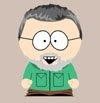Short story mania!
Though it does not presage a change in my approach to my ongoing novel-length work, A Far Sun, lately I've been looking at and working on a few short stories. I have one put to bed, and though it has its flaws, it's pretty good. The title is Life Cycle, and when I get back from vacation I plan to submit it to as many Sci-Fi magazines (both online and print) as I can find willing to accept submissions. By then Escape Pod should be accepting submissions, so I will post it there, as well.
So yeah, I'm about to head out on vacation, back to the same place we've gone the past few years: Orlando, FL. Hey, we have a timeshare there (and we didn't plan far enough in advance to ensure we could get accommodations somewhere else).
What's Life Cycle about? Well, it involves humans landing on an alien planet and the strange events that transpire after one of the crew dies, and is buried on the planet. But methinks I've perhaps given too much away, already.
My second story, which I'm about halfway through, is entitled Baby Madeline. This is a dark little tale about what might happen if they started offering women trendy, "artificial pregnancies" the way some women get boob jobs. I got the idea when I saw a commercial for a truly creepy, life-like (it even breathes!) doll called Baby Ashley. When I saw the ad I asked "what's next?" and let my imagination go.
My third story is just too much fun. It's called Moe Kauble - "The Alien in the Drum Kit" and any similarity to the SNL skit "More Cowbell" is entirely non-coincidental. This is a YA story about two plucky homeless kids, Jenny and Jeremy, who find old Mr. Kauble's garage and start coming there to watch and listen to the practices of a truly awful rock band, then discover there is more to drumming than meets the eye. Moe is the alien, of course. Think "My Favorite Martian meets Rock Band" Yeah, you got it. I just got this idea yesterday, so of course it's subject to change.
I've never tried to do much in the way of short fiction, and I think now that that's been a mistake. There are many valuable and useful things to be learned from short fiction. Ultimately I think it makes all our writing better, so wish me luck on my latest endeavors.
I'm in fairly good shape with A Far Sun. I pushed the word count for book 3 past 36,000. While I'm on vacation I do plan to add to that number. When I get back I'll post the results. I may even finish Baby Madeline, which should be exciting. I don't think I will be posting any of these stories here, but that doesn't mean I don't love all zero of you! I do.
So, in the meantime, keep cool, and as always, stay tuned.
So yeah, I'm about to head out on vacation, back to the same place we've gone the past few years: Orlando, FL. Hey, we have a timeshare there (and we didn't plan far enough in advance to ensure we could get accommodations somewhere else).
What's Life Cycle about? Well, it involves humans landing on an alien planet and the strange events that transpire after one of the crew dies, and is buried on the planet. But methinks I've perhaps given too much away, already.
My second story, which I'm about halfway through, is entitled Baby Madeline. This is a dark little tale about what might happen if they started offering women trendy, "artificial pregnancies" the way some women get boob jobs. I got the idea when I saw a commercial for a truly creepy, life-like (it even breathes!) doll called Baby Ashley. When I saw the ad I asked "what's next?" and let my imagination go.
My third story is just too much fun. It's called Moe Kauble - "The Alien in the Drum Kit" and any similarity to the SNL skit "More Cowbell" is entirely non-coincidental. This is a YA story about two plucky homeless kids, Jenny and Jeremy, who find old Mr. Kauble's garage and start coming there to watch and listen to the practices of a truly awful rock band, then discover there is more to drumming than meets the eye. Moe is the alien, of course. Think "My Favorite Martian meets Rock Band" Yeah, you got it. I just got this idea yesterday, so of course it's subject to change.
I've never tried to do much in the way of short fiction, and I think now that that's been a mistake. There are many valuable and useful things to be learned from short fiction. Ultimately I think it makes all our writing better, so wish me luck on my latest endeavors.
I'm in fairly good shape with A Far Sun. I pushed the word count for book 3 past 36,000. While I'm on vacation I do plan to add to that number. When I get back I'll post the results. I may even finish Baby Madeline, which should be exciting. I don't think I will be posting any of these stories here, but that doesn't mean I don't love all zero of you! I do.
So, in the meantime, keep cool, and as always, stay tuned.
Labels: A Far Sun, miscellaneous, short fiction

